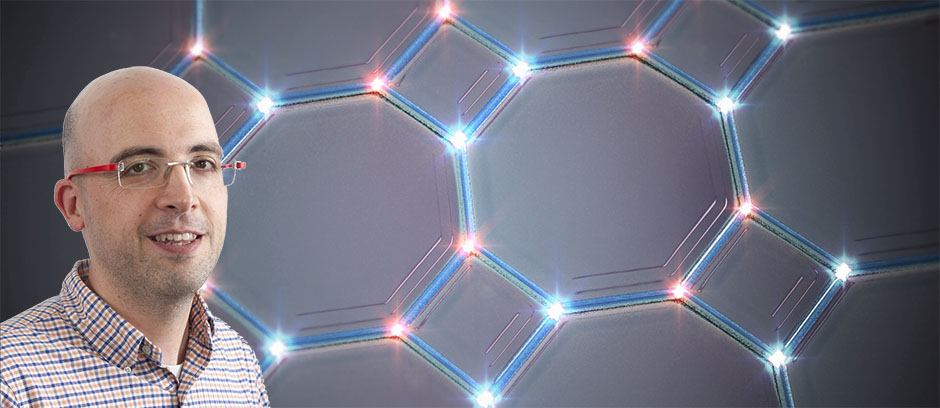Tuesday, 08 October 2019
The ICN2 and Microsoft expand partnership in quantum computing research
The ICN2 Advanced Electron Nanoscopy Group is expanding its collaboration with the global network of Microsoft Quantum Labs in furtherance of Microsoft’s goal of developing a scalable quantum computer - a vastly more powerful informatics tool based on radically different physics principles. The ICN2 laboratories will provide atomic-scale measurements, analysis, and modelling of new materials.

Interest in and awareness of quantum computing has grown with increasing global investment in the quest to build a quantum computer. Promising mindboggling processing capacities and speeds, quantum computers will fundamentally change our economy, industry, and everyday life. It therefore comes as no surprise that leading information technology and electronics companies are pursuing related research internally and collaboratively with third parties, from the mathematical algorithms needed to control and interpret quantum bits (or qubits - the processing units) to the engineering of devices at the nanoscale that are needed to make this revolution possible.
The ICN2 is deepening its strategic research partnership with Microsoft, an acknowledged world leader in the development of quantum computing technology. Microsoft Quantum Labs have been established around the globe by Microsoft; these are dedicated centres working on every aspect of developing a quantum computer, from foundational physics to the design of new software tools to fully exploit the potential of quantum computing.
Microsoft Quantum Materials Lab Copenhagen, in particular, has been working on designs for new materials that can be used to enable quantum devices. Specifically, one line of research involves the development of hybrid heterostructures that support the all-important Majorana fermions, as demonstrated at both Microsoft Quantum Lab Copenhagen and Microsoft Quantum Lab Delft.
Majorana fermions are particles of the fermion class that have the characteristic of being their own antiparticles. In condensed matter physics, Majorana bound states can appear under specific conditions: special quantum states that can be used as qubits. The research carried out by Microsoft --which the ICN2 will contribute to-- is based on the development of semiconductor – superconductor hybrid nanowires, at the edges of which Majorana bound states can generate.
In order to fully understand and exploit the potential of these new structures, they must first be analysed and understood at the atomic level. The ICN2 Advanced Electron Nanoscopy Group, led by ICREA Prof. Jordi Arbiol, will provide its expertise in electron microscopy and related spectroscopies to perform measurements and analysis of the complex structure and physical properties of these Majorana nanowires. By doing so, they will shed light on the structure of these and on how they respond at the atomic level to external stimuli.
Here is an animation showing the structure of Majorana nanowires:

